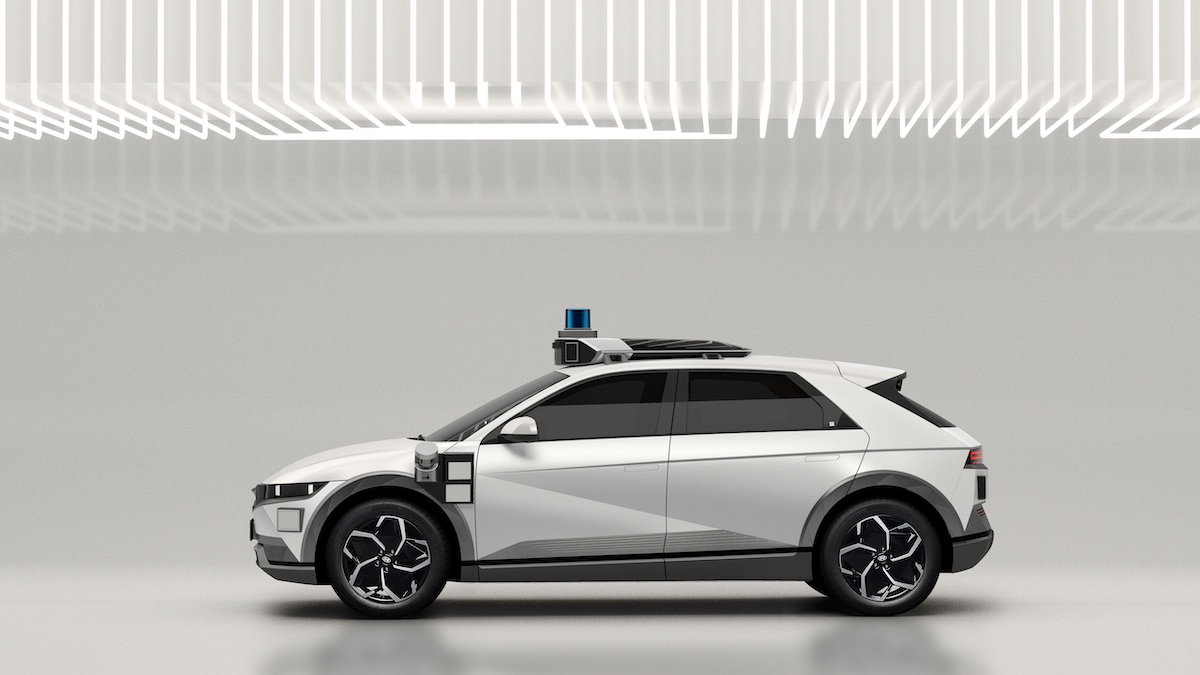Would you trust a self-driving car on the road?
Earlier this month, Aptiv and Hyundai-led autonomous vehicle company Motional released new data from a third party survey on public trust and perception of self-driving cars and trucks. The Hazelwood Green-based company, which specializes in robotaxi services through partnerships with industry leaders like Lyft and Via, released its second annual Motional Consumer Mobility Report, which collects responses from 1,000 people across the country to better understand public perception of autonomous vehicle technology.
Like many other companies in the industry, Motional plans to commercially launch its robotaxi tech in the next couple of years. But to do that successfully, it knows that public trust in the safety of the highly disruptive technology is key. But the report’s findings show there’s still a lot of work to do around that.
Only one in three respondents to the survey said they think autonomous vehicles are safer on the road for drivers, pedestrians and cyclists, the report said. And a mere 15% of those surveyed think that AVs today are safe and reliable. Specifically, respondents expressed concerns around the lack of control that they perceive autonomous vehicles to have as well as a need for more testing of the tech.
“While consumers are more open to driverless technology than ever before, seeing is believing and this is technology few people have experienced,” Motional VP of Technology Strategy Eryk Nice wrote in an email to Technical.ly. “As we put more vehicles on the road, we’ll bridge the gap between the perception of this technology, and the reality of how positively and permanently it will change our lives through safer roads, more free time, and increased mobility.”
Read the full reportBut for all of the remaining safety concerns around autonomous vehicles, the report also shows signs of hope that more people are adjusting to the idea of self-driving cars, even if they don’t fully trust the tech yet. Nationally, half of the respondents said they expect to see autonomous vehicles on the roads in their communities within the next five years, which the report noted is an increase from just 39% with that expectation in 2020. In Pennsylvania, that number is even higher at 61%.
Those statistics come as little surprise given the slew of pilot programs and semi-commercial limited launches companies across the industry have announced in the past year. And certainly, the announcement of major industry partnerships with corporations like Walmart and FedEx paired with public offerings from others have catapulted autonomous vehicles into the tech news cycle this year.
That will only increase as companies like Motional prepare for their eventual large-scale commercial launches, Nice said. As for when consumers might start seeing them on the roads more often, “robotaxi deployments will happen on a city-by-city evolution,” he wrote. “When a consumer can experience an AV will predominantly depend on where they live.”
35% of respondents would support AV investment as a way to supplement their cities' public transportation access limitations.
And there are signs in the report that autonomous vehicles, in the same vein as other new tech, could be a reason for relocation to consumers: “It’s exciting to see consumer interest continue to grow, but equally exciting is the fact that nearly 1 in 3 (29%) of the public believes driverless initiatives make a city more attractive to move to,” Nice said.
Part of that might stem from the benefits autonomous vehicles could offer for public transportation or last-mile delivery services. Around a third of respondents said that they found their cities’ public transportation access limited, and would support investment into robotaxis or other autonomous vehicles as a way to supplement those limitations. Meanwhile, another third said they’d be comfortable receiving a delivery from a self-driving vehicle, a solution that could address today’s supply chain challenges.
“We see a future where robotaxis are part of an integrated transportation ecosystem, helping to solve existing challenges and improving mobility for community members,” Nice said. He added that Motional hopes to employ its tech toward this end through last-mile transportation options for people from transit stations to their homes, making ride-hailing services through robotaxis a more mainstream public transportation option and using autonomous vehicles to bridge the gap between areas with strong public transportation to areas where there is little to none.
As for when Pittsburgh might see its own launch of Motional’s robotaxis? That remains unclear. But Nice said the company’s location here will continue to be part of the AV hub, including new investments in local operations, continued research and testing of the tech and — in good news for the growing tech workforce here — continued team expansion.







